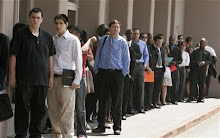 By Michael Jones
By Michael JonesCharleston Gazette-Mail
Sept. 3, 2005
SAN ANTONIO, Texas - Two flight crews from the 130th Airlift Wing began the daunting task of evacuating refugees from flood-ravaged New Orleans to various cities Friday afternoon.
The West Virginia Air National Guard has sent three C-130 cargo planes and their crews to Louisiana to aid in the relief effort following Hurricane Katrina earlier this week.
Another four planes -- loaded with troops, Humvees and supplies -- are scheduled to leave Yeager Airport this morning to head to the disaster sites. Two other C-130s left Thursday.
As tension in Louisiana continues to mount concerning emergency aid in the region, crew members from each C-130 understand the survivors' concerns. Maj. Kevin Meagher has done several tours of duty in Iraq and helped a relief effort after an earthquake that struck Iran in early 2004.
"I think (the mission began) a couple of days too late, but I'm really glad we're able to do it," said Meagher, who was part of the first crew to leave. "There's not enough being done and we've been sitting around for a day-and-a-half now. The opportunity to do it is great, but it's just a little frustrating."
He and his team, which evacuated survivors early Thursday, were grounded Friday afternoon while the other two C-130s extracted scores of refugees. Meagher's feelings of a late response by the federal government are echoed by the sight of thousands of New Orleans residents scrambling for food, water and dry land.
Local police have been over-matched against gangs that have looted and ransacked the already crippled city. National Guard units from numerous states have been called to restore order to the area.
Some in the 130th understand why relief efforts have been slow from the beginning.
"They didn't realize how bad the storm was going to be," Sgt. Julius Rembrandt said. "They didn't realize how many people didn't evacuate, so it's going to take a while to get everything in order. It looks like things are moving a little quicker (Friday)."
"It's such a massive operation," Sgt. Dennis Heilmann said. "We're used to this sort of thing."
"I'm sure it's going to take time to get things organized so I think things will come together real quick," Sgt. Steve Dye said. "Hopefully soon."
The three crews from the 130th were waiting in San Antonio for their orders Friday afternoon, but where they will be today is anyone's guess. One crew left for New Orleans around 5 p.m. local time Friday to transport sick and injured survivors to Nashville, Tenn., and San Antonio overnight. Another plane was scheduled to leave at 9 p.m.
One of the major stumbling points in the evacuation process has been finding room for thousands of people who were washed from their homes. The Astrodome in Houston was already filled to capacity early Friday morning, leaving a San Antonio business complex as the best alternative.
Heilmann said the Guard unit is prepared to handle such a disaster, but is more accustomed to dealing with situations in West Virginia.
"It's not different from the missions we do," Heilmann said. "We've always done disaster relief, it's just different to come down here and do it."
All members of the Guard acknowledged they were pleased to help, even while receiving word of the mission on such short notice. Most crew members were not told of the operation until a few hours before they left. Maj. David Lester said the delays can be frustrating, but the Guard is designed to be flexible to conditions they cannot control.
"It gives us great personal satisfaction because when you see on the TV and you read in the newspaper about these folks who are suffering, to know anything we can do to help means a lot," he said.
"We're glad to be down here and do anything we can to help with the relief effort," said Rembrandt, who served 15 years as a firefighter before joining the Guard. "There are a lot of people that are desperate for any kind of help they can get."
The Air Guard in Charleston, which has seven planes available to fly to the disaster areas, will continues their mission indefinitely. The three crews already present are expected to stay until Monday, although their departure date is still in question.
The four planes leaving today are supposed to deliver 65 troops and other people and 16 Humvees to the disaster sites. Two of those planes will make additional trips.





Since the crews are mandated to take several hours off to rest, there was little that we could do before deadline. Most of these interviews were done while walking back to our hotel from a BBQ joint in San Antonio. The men I talked to were eager to help, but they had no idea of the jarring experience that awaited them a few hours later at Louis Armstrong International Airport in New Orleans.
ReplyDelete